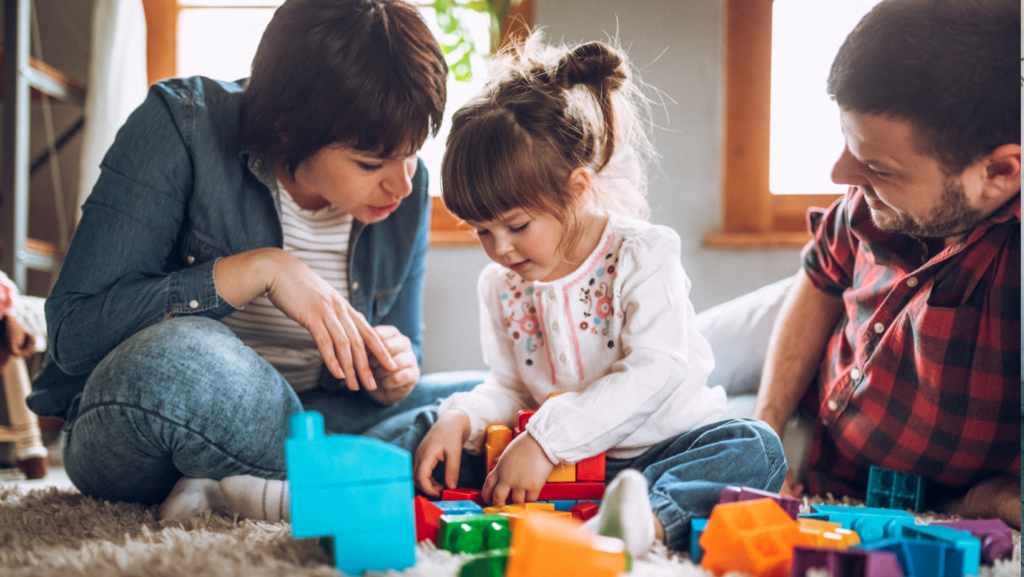”
Key Takeaways
- Definition Focus: Positive discipline emphasizes guidance and teaching over punishment, fostering understanding and respect between parents and children.
- Core Principles: The method is rooted in respect, kindness, support, and encouragement, creating a nurturing environment for emotional growth.
- Effective Techniques: Implement strategies like setting clear expectations and applying natural consequences to promote responsibility and self-regulation in children.
- Strengthened Relationships: Positive discipline enhances parent-child relationships by fostering trust, open communication, and cooperation while reducing conflict.
- Emotional Intelligence: This approach promotes children’s emotional intelligence, enabling them to recognize and manage their own emotions effectively.
- Addressing Challenges: Understanding common misconceptions and overcoming resistance are crucial for successfully integrating positive discipline into everyday parenting.
In the journey of parenting, discipline often feels like a daunting task. Yet, positive discipline offers a refreshing approach that fosters respect and understanding between parents and children. This method emphasizes guidance over punishment, encouraging kids to learn from their mistakes while building essential life skills.
By integrating positive discipline into everyday parenting, caregivers can create a nurturing environment that promotes emotional intelligence and resilience. Instead of resorting to traditional punitive measures, parents can employ strategies that reinforce good behavior and strengthen their bond with their children. Embracing this philosophy not only benefits the child but also transforms the parenting experience into a more fulfilling and joyful adventure.
Positive Discipline In Everyday Parenting
 Positive discipline focuses on teaching and guiding children rather than punishing them. This approach promotes healthy development and fosters strong parent-child relationship. Positive discipline is a parenting method that emphasizes respectful communication, empathy, and social learning.
Positive discipline focuses on teaching and guiding children rather than punishing them. This approach promotes healthy development and fosters strong parent-child relationship. Positive discipline is a parenting method that emphasizes respectful communication, empathy, and social learning.
It encourages parents to establish clear expectations while reinforcing desired behaviors through encouragement and praise. This method helps children understand the impact of their actions, enabling them to learn from mistakes. In contrast to traditional discipline, which often relies on punishment, positive discipline cultivates cooperation, responsibility, and self-regulation in children.
Historical Context and Development
Positive discipline emerged during the 20th century as a response to more authoritarian parenting styles characterized by punishment and control. Influenced by psychologists such as Alfred Adler and Rudolf Dreikurs, positive discipline integrates theories of social learning and emotional intelligence. The approach has been shaped by ongoing research in child development, illustrating the importance of nurturing relationships in fostering resilience and emotional well-being. Its roots in mental health and education highlight the focus on comprehensive growth rather than just behavioral compliance, making it a relevant choice for today’s parents.
Key Principles of Positive Discipline
Positive discipline relies on foundational principles that enhance parenting effectiveness. These principles foster a nurturing environment for children to learn and grow.
Respect and Kindness
Respect and kindness underpin positive discipline. Parents demonstrate respect by valuing children’s feelings, opinions, and perspectives. Open, honest communication enhances mutual understanding. Kindness manifests through supportive interactions that prioritize empathy. For example, listening to children when they express emotions builds trust. Using words that encourage rather than discourage promotes a positive atmosphere. Such an environment allows children to feel secure, resulting in healthier emotional development.
Encouragement and Support
Encouragement and support are essential components of positive discipline. Parents focus on highlighting children’s strengths and achievements, reinforcing positive behaviors rather than solely correcting negative ones. Praise should be specific and genuine, stating exactly what behavior merits recognition. For instance, saying, “I’m proud of you for sharing your toy,” emphasizes the importance of cooperation. Additionally, offering support during challenging tasks helps cultivate resilience. When parents guide children through difficulties, they foster a sense of competence and empowerment, which contributes significantly to self-esteem and motivation.
Techniques for Implementing Positive Discipline
 Positive discipline includes practical techniques that aid in nurturing children’s development while maintaining respectful communication. Here are some effective methods for parents to integrate into everyday parenting.
Positive discipline includes practical techniques that aid in nurturing children’s development while maintaining respectful communication. Here are some effective methods for parents to integrate into everyday parenting.
Setting clear expectations forms the foundation of positive discipline. Parents should communicate rules and limits in a straightforward manner, ensuring children understand what is expected of them. Consistency reinforces these expectations, leading to improved behavioral outcomes. Here are key points for establishing clear expectations:
- Be specific: Describe desired behaviors clearly to avoid confusion.
- Involve the child: Discuss rules with children, allowing them to express their thoughts and feelings, fostering a sense of ownership.
- Use visuals: Create charts or posters with rules, providing a constant visual reminder for children.
- Review regularly: Periodically revisit rules and expectations to adapt as children grow and change.
Natural Consequences
Natural consequences serve as a powerful tool in positive discipline, allowing children to experience the outcomes of their actions within safety limits. This technique promotes learning and self-regulation. Consider these approaches when utilizing natural consequences:
- Allow safe experiences: Let children feel minor, safe consequences, which facilitates learning from mistakes.
- Be supportive: Offer guidance on how to handle the situation without criticism when a natural consequence occurs.
- Encourage problem-solving: Help children reflect on their choices and brainstorm ways to handle similar situations in the future.
- Reinforce empathy: Discuss the feelings involved in both their actions and the resulting consequences, aiding emotional development.
Implementing these techniques fosters an environment where children can grow into responsible, resilient individuals, effectively integrating positive discipline into everyday parenting.
Benefits of Positive Discipline In Everyday Parenting
Positive discipline offers numerous advantages that significantly impact the parenting experience and child development. This approach cultivates healthier relationships and equips children with critical emotional and social skills.
Enhancing parent-child relationships is a key benefit of positive discipline. Parents foster trust by prioritizing open communication and mutual respect. Children feel valued and understood, leading to increased cooperation and willingness to engage in family discussions. Reduced conflict arises from constructive problem-solving techniques, allowing both parents and children to express their feelings without fear of reprimand. By emphasizing empathy, parents create an environment that nurtures connection and strengthens bonds.
Promoting Emotional Intelligence
Promoting emotional intelligence is another significant advantage of positive discipline. This approach encourages children to identify and manage their own emotions effectively. Children learn to recognize their feelings and those of others, fostering empathy and social awareness. Positive discipline techniques, such as modeling appropriate responses and discussing emotions, help children develop self-regulation skills. As they gain confidence in expressing their emotions constructively, children build resilience and adaptability, making them better equipped to navigate life’s challenges.
Challenges in Practicing Positive Discipline
Practicing positive discipline can present several challenges for parents. Understanding these challenges helps in effectively implementing this nurturing approach.
Common Misconceptions
Misconceptions often hinder the effective practice of positive discipline. Many believe that positive discipline equates to a lack of boundaries or consequences. In reality, it emphasizes setting clear expectations while fostering respect and understanding. Others mistakenly assume that positive discipline only involves praise, neglecting the importance of teaching responsibilities through natural consequences. Parents might also think this method is less effective than traditional discipline, when studies show that children benefit from positive approaches in developing self-regulation and emotional intelligence.
Overcoming Resistance
Resistance can occur from both parents and children when transitioning to positive discipline. Parents may struggle to adopt a new mindset, especially if they were raised with traditional punitive methods. Engaging in workshops or online resources can facilitate this transition. Children may resist the shift, expecting punishment for misbehavior. Consistent and clear communication of expectations helps mitigate this resistance. By involving children in discussions about rules and consequences, parents empower them and ease the transition, making positive discipline more effective in everyday parenting.
Embracing positive discipline transforms the parenting experience into a rewarding journey. By fostering open communication and mutual respect, parents create a nurturing environment where children thrive. This approach not only enhances emotional intelligence but also strengthens the parent-child bond.
As parents prioritize guidance over punishment, they equip their children with essential life skills and resilience. The shift to positive discipline may come with challenges, but the long-term benefits far outweigh the initial hurdles. Through patience and consistent practice, parents can cultivate a cooperative and responsible atmosphere, ultimately leading to happier families.



